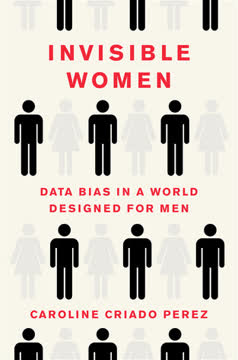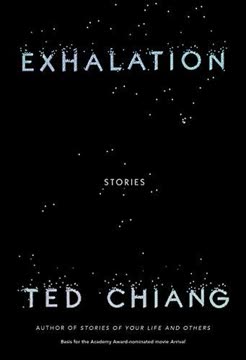Key Takeaways
1. Human inventiveness is a double-edged sword, bringing both progress and peril
Contained within those initial acts of creation was the potential, also, for destruction.
Progress and peril. Throughout history, human inventions have simultaneously advanced civilization and introduced new dangers. From the stone hand-axe that enabled both hunting and warfare, to nuclear power that provides clean energy but risks catastrophic accidents, our creations often have unintended consequences. This duality is evident in agriculture, which allowed larger populations but led to new diseases, and in fossil fuels, which powered the industrial revolution but now threaten the climate.
Unintended consequences. Many inventions have had far-reaching impacts beyond their original purpose:
- The printing press enabled mass communication but also propaganda
- Antibiotics saved millions of lives but led to resistant superbugs
- The internet connected the world but created new privacy and security risks
The key lesson is that we must carefully consider the potential downsides of new technologies, not just their obvious benefits. Responsible innovation requires foresight, ethical considerations, and ongoing assessment of both positive and negative impacts on society and the environment.
2. Writing and language revolutionized human communication and civilization
Language may be both the reason we developed brains that invent, and the means by which those inventions were made possible.
Linguistic foundations. The development of language and writing were pivotal in human evolution, enabling complex thought, cooperation, and the transmission of knowledge across generations. Language allowed humans to form larger social groups, coordinate activities, and develop abstract concepts. Writing systems further revolutionized communication by allowing ideas to be preserved and shared across time and space.
Key impacts of writing and language:
- Enabled the development of laws, contracts, and complex social structures
- Facilitated the accumulation and spread of knowledge
- Allowed for the creation of literature, philosophy, and scientific texts
- Played a crucial role in the development of mathematics and other abstract systems
The ability to communicate complex ideas through language and writing has been fundamental to nearly all subsequent human inventions and discoveries. It forms the basis of education, scientific inquiry, and technological progress, making it perhaps the most transformative "invention" in human history.
3. Agriculture transformed human society but introduced new challenges
Farming resulted in human diseases that had not afflicted humankind previously, as well as loss of genetic diversity and threats to the environment of the planet.
Agricultural revolution. The transition from hunter-gatherer societies to agricultural ones around 10,000 years ago was a pivotal moment in human history. It allowed for larger, more stable populations and the development of complex civilizations. However, this shift also brought significant challenges that continue to impact us today.
Positive and negative impacts of agriculture:
- Enabled larger, more stable food supplies
- Allowed for specialization of labor and technological advancement
- Led to the development of cities and complex societies
- Introduced new diseases from close contact with domesticated animals
- Reduced dietary diversity, leading to nutritional deficiencies
- Caused environmental degradation through deforestation and soil depletion
- Created social inequality as surplus food led to hierarchical societies
The agricultural revolution demonstrates how even transformative innovations can have complex, long-term consequences that reshape human society in both positive and negative ways. Understanding this history is crucial for addressing current challenges in food production, public health, and environmental sustainability.
4. The industrial revolution powered by fossil fuels reshaped the world
We do not need the menace of advances in weapons technology to remind ourselves how precarious our existence on the planet is, because peaceful technologies like transport are damaging our environment just as effectively, and perhaps irreversibly.
Fossil fuel transformation. The industrial revolution, powered by coal and later oil, dramatically increased human productivity and living standards. It enabled mass production, rapid transportation, and unprecedented economic growth. However, this reliance on fossil fuels has led to severe environmental consequences, particularly climate change.
Key impacts of fossil fuel-driven industrialization:
- Massive increases in productivity and economic output
- Improved living standards and life expectancy in industrialized nations
- Enabled global trade and communication networks
- Severe air and water pollution in industrial areas
- Depletion of non-renewable resources
- Greenhouse gas emissions leading to global warming
- Geopolitical conflicts over oil and other fossil fuel resources
The fossil fuel era highlights how transformative technologies can reshape society on a global scale, while also creating new, potentially existential challenges. The urgent need to transition to sustainable energy sources demonstrates the ongoing struggle to balance technological progress with environmental stewardship.
5. Nuclear power offers potential but carries significant risks
Nuclear power does create waste. A reactor works by generating heat, which produces steam to drive turbines. There are no pollutant by-products like ozone or carbon dioxide.
Nuclear dilemma. Nuclear power presents a complex trade-off between clean energy production and potential catastrophic risks. It offers a low-carbon alternative to fossil fuels but raises concerns about radioactive waste, nuclear accidents, and weapons proliferation.
Pros and cons of nuclear power:
- Produces large amounts of carbon-free electricity
- High energy density, requiring less land than solar or wind
- Reliable baseload power not dependent on weather conditions
- Risk of severe accidents (e.g., Chernobyl, Fukushima)
- Long-term storage issues for radioactive waste
- High initial costs for plant construction
- Potential for nuclear technology to be used for weapons
The debate over nuclear power illustrates the challenges of risk assessment and decision-making in complex technological systems. It raises questions about how societies should balance potential benefits against low-probability but high-impact risks, and highlights the importance of robust safety measures and international cooperation in managing potentially dangerous technologies.
6. Medicine advanced through war and chance discoveries more than systematic research
Waging war has resulted in more medical advances than any other activity.
Serendipitous progress. Many of medicine's greatest advances came not from systematic research but from chance discoveries and the pressures of wartime. This highlights both the unpredictable nature of scientific progress and the ethical complexities surrounding medical advancements born from conflict.
Examples of medical advances driven by war and chance:
- Penicillin's discovery from a contaminated petri dish
- Plastic surgery techniques developed to treat WWI facial injuries
- Blood banks and transfusion methods improved during the Spanish Civil War
- Trauma care and emergency medicine advanced during various conflicts
- Prosthetics development accelerated by war injuries
While these advancements have saved countless lives, they also raise ethical questions about the role of conflict in driving medical progress. Moreover, the reliance on chance discoveries suggests that systematic research alone may not be sufficient for breakthrough innovations. This history underscores the importance of preserving serendipitous discoveries while also investing in targeted research to address pressing medical needs.
7. Climate change and resource depletion pose existential threats to modern civilization
If the most careful scientific assessments are correct, our need to do more to control greenhouse gases is extremely urgent.
Urgent action needed. Climate change and the depletion of key resources, particularly fossil fuels, represent critical challenges to the sustainability of modern civilization. These interconnected issues stem largely from the unintended consequences of our technological progress and require urgent, coordinated global action to address.
Key aspects of the climate and resource crisis:
- Rising global temperatures leading to extreme weather events
- Sea level rise threatening coastal communities
- Biodiversity loss and ecosystem disruption
- Peak oil and the need for transition to renewable energy
- Water scarcity in many regions
- Food security challenges due to changing climate patterns
Addressing these issues requires a multifaceted approach:
- Rapid transition to renewable energy sources
- Improved energy efficiency in buildings, transportation, and industry
- Sustainable agriculture and land use practices
- Development of new technologies for carbon capture and storage
- International cooperation and policy frameworks to coordinate action
The climate crisis exemplifies how the cumulative impact of human inventions and practices can create global-scale challenges that transcend national boundaries. It underscores the need for a new approach to technological development that prioritizes long-term sustainability and considers systemic impacts on the planet's ecosystems.
Last updated:
Review Summary
Bad Ideas? receives mixed reviews, with an average rating of 3.57/5. Many readers find it engaging and informative, praising its balanced approach to scientific advancements and their consequences. Some appreciate Winston's insights into various fields, particularly medicine and agriculture. Critics argue the book lacks coherence and depth, with some finding it overly negative or basic. Several reviewers commend the author's writing style and research, while others feel it rambles or oversimplifies complex topics. Overall, readers appreciate the thought-provoking nature of the book, even if they don't agree with all of Winston's conclusions.
Similar Books
Download PDF
Download EPUB
.epub digital book format is ideal for reading ebooks on phones, tablets, and e-readers.










